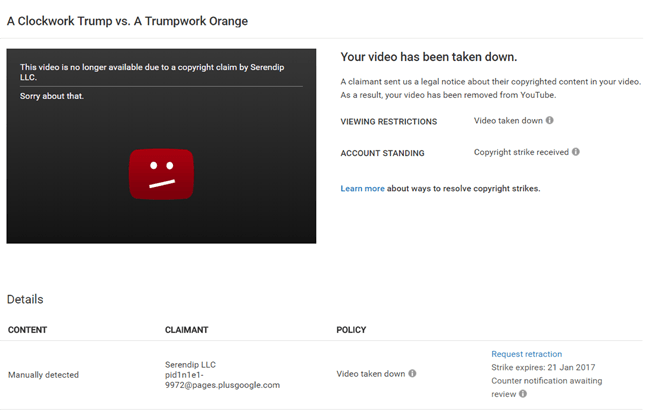U.S. Navy Returns Fire in $600m Piracy Lawsuit
mardi 15 novembre 2016 à 10:54 In 2011 and 2012, the US Navy began using BS Contact Geo, a 3D virtual reality application developed by German company Bitmanagement. The Navy reportedly agreed to purchase licenses for use on 38 computers but things began to escalate.
In 2011 and 2012, the US Navy began using BS Contact Geo, a 3D virtual reality application developed by German company Bitmanagement. The Navy reportedly agreed to purchase licenses for use on 38 computers but things began to escalate.
Amid negotiations to sell additional licenses to the Navy, the software vendor said that it discovered that the Navy had already installed the software on more than 100,000 computers.
According to a federal claims court complaint filed by Bitmanagement in July, that figure later increased to 558,466 computers. As a result, Bitmanagement demanded compensation totaling a cool $600 million.
Now the US Navy has returned fire, denying Bitmanagement’s allegations. In a response filed yesterday, the Navy admitted purchasing 38 licenses for BS Contact Geo but denies that the licenses were “limited” to installations on 38 Navy computers. “Concurrent-use network-installation licenses” of the software were obtained, it says.
“Defendant admits that the Navy installed BS Contact Geo onto hundreds of thousands of computers within its network starting on or about August 2013. Defendant denies that BS Contact Geo was installed on the Navy’s networked computers without Bitmanagement’s knowledge or authorization,” the filing reads.
“Defendant further avers that Bitmanagement modified BS Contact Geo for the purpose of allowing such installation, and that Bitmanagement received multiple updates regarding the status of this installation. Defendant denies that Bitmanagement did not license or consent to such installation and use of its software.”
In the original complaint, it was stated that Bitmanagement executives were “surprised” to discover that amid licensing negotiations the Navy had already installed almost 105,000 copies of the software on an equal number of machines. In its response, the Navy said that since Bitmanagement had already modified the software for this use, the installations should have been expected.
“Defendant admits that emails were provided to Bitmanagement in the summer and fall of 2013 advising Bitmanagement regarding the deployment of BS Contact Geo on the Navy’s network. Defendant admits that one such email indicated a successful deployment to 104,922 Navy computers,” the response reads.
“Defendant denies that the installations should have been surprising to Bitmanagement’s executives, and Defendant further avers that Bitmanagement modified BS Contact Geo for the purpose of allowing the deployment.”
Via the government, the Navy further denies that it accepted it had installed the software on more machines that it had licenses for, denies it knew that a license was required for each machine, denies that it knew that each unlicensed installation was an instance of willful infringement, and denies that Bitmanagement has suffered any loss.
In conclusion, the Navy insists that no copyrights have been infringed since Bitmanagement authorized reproduction and distribution of the software both “expressly and impliedly.”
The government also adds that as a German corporation, Bitmanagement’s claim “may be jurisdictionally” barred by 28 U.S.C. § 2502(a), but it doesn’t stop there.
“To the extent that Plaintiff’s claims are premised on ‘willful infringement’ or any other basis beyond the scope of 28 U.S.C. § 1498(b)…Plaintiff’s claims are barred by sovereign immunity,” it adds.
Finally, the government adds that Bitmanagement’s claim could be rendered null due to its failure to act when it knew any alleged infringement was taking place.
“To the extent that Plaintiff seeks recovery for any alleged infringement that resulted from Plaintiff’s failing or refusing to take such actions as is reasonably necessary to minimize any loss which it may have sustained, Plaintiff is precluded from any such recovery due to its failure to mitigate damages,” the response reads.
In closing, the government demands that the complaint against the Navy should be dismissed, with the government awarded all expenses including costs and attorney’s fees. With the sides so far apart, this one looks set to run and run.
Source: TF, for the latest info on copyright, file-sharing, torrent sites and ANONYMOUS VPN services.
 The past week has been quite a tumulteous one for U.S. politics. However, that doesn’t mean that the wheels hve stopped turning.
The past week has been quite a tumulteous one for U.S. politics. However, that doesn’t mean that the wheels hve stopped turning. 

 This week we have four newcomers in our chart.
This week we have four newcomers in our chart. 